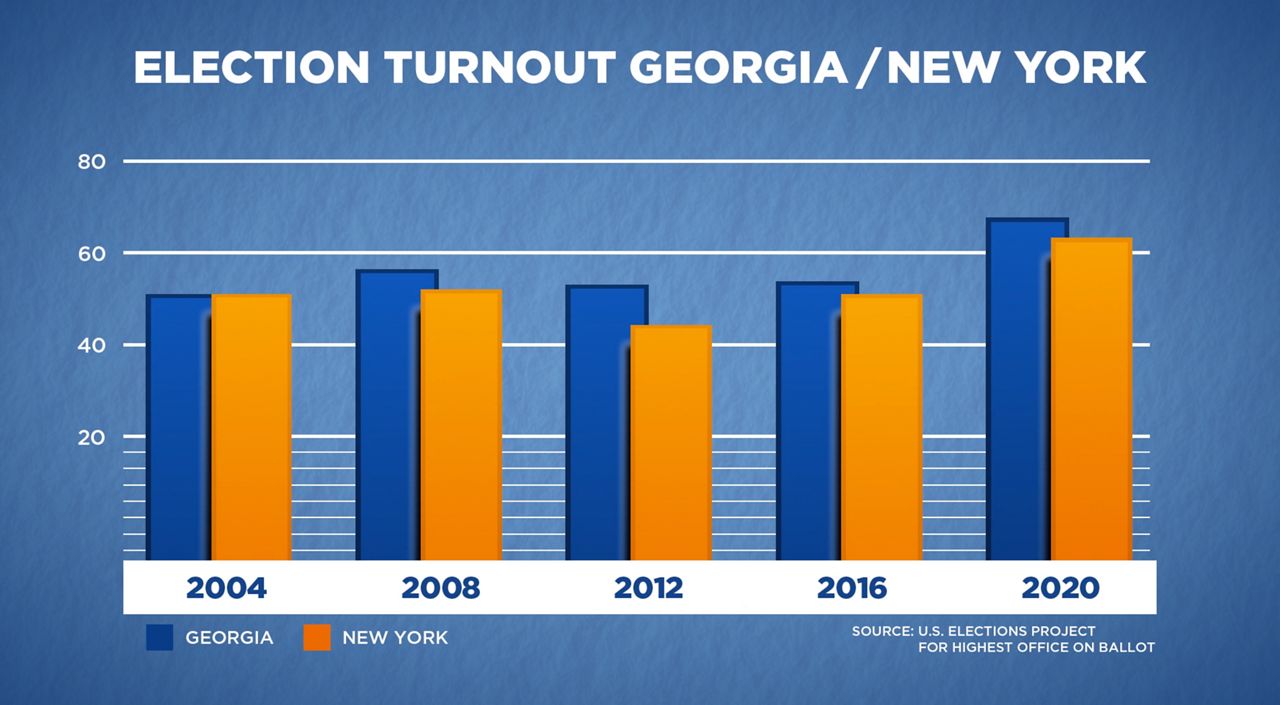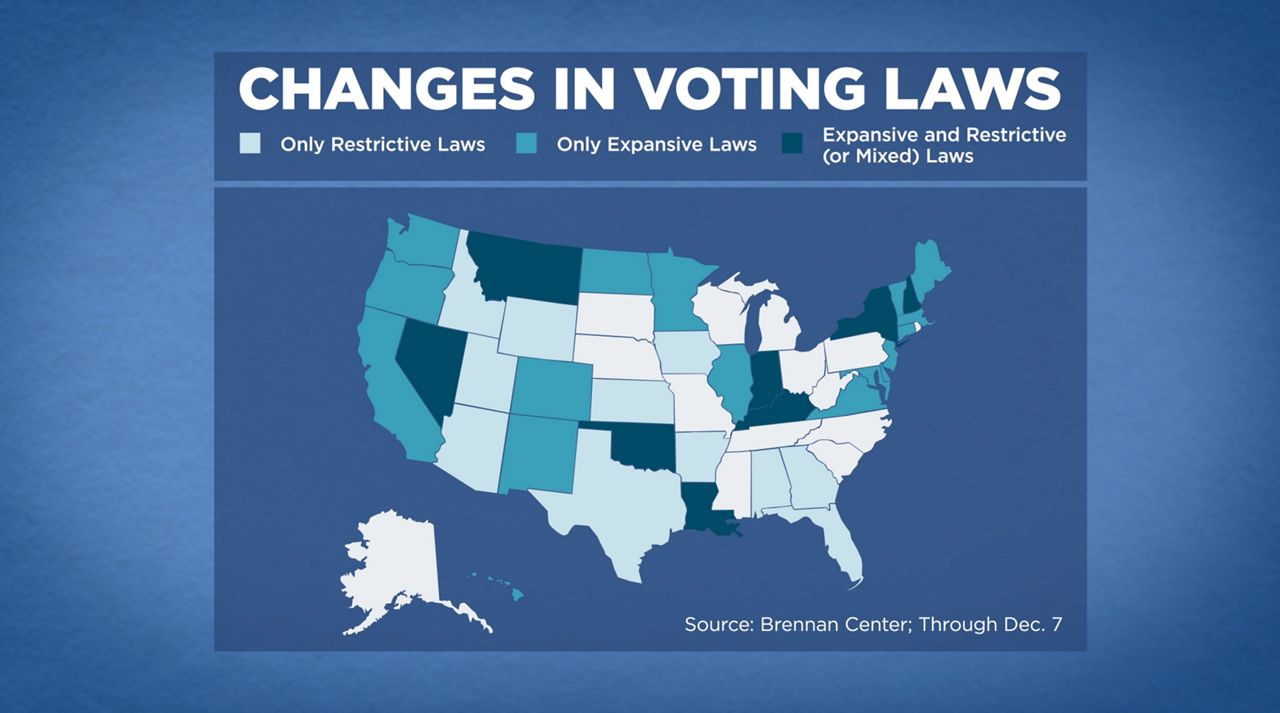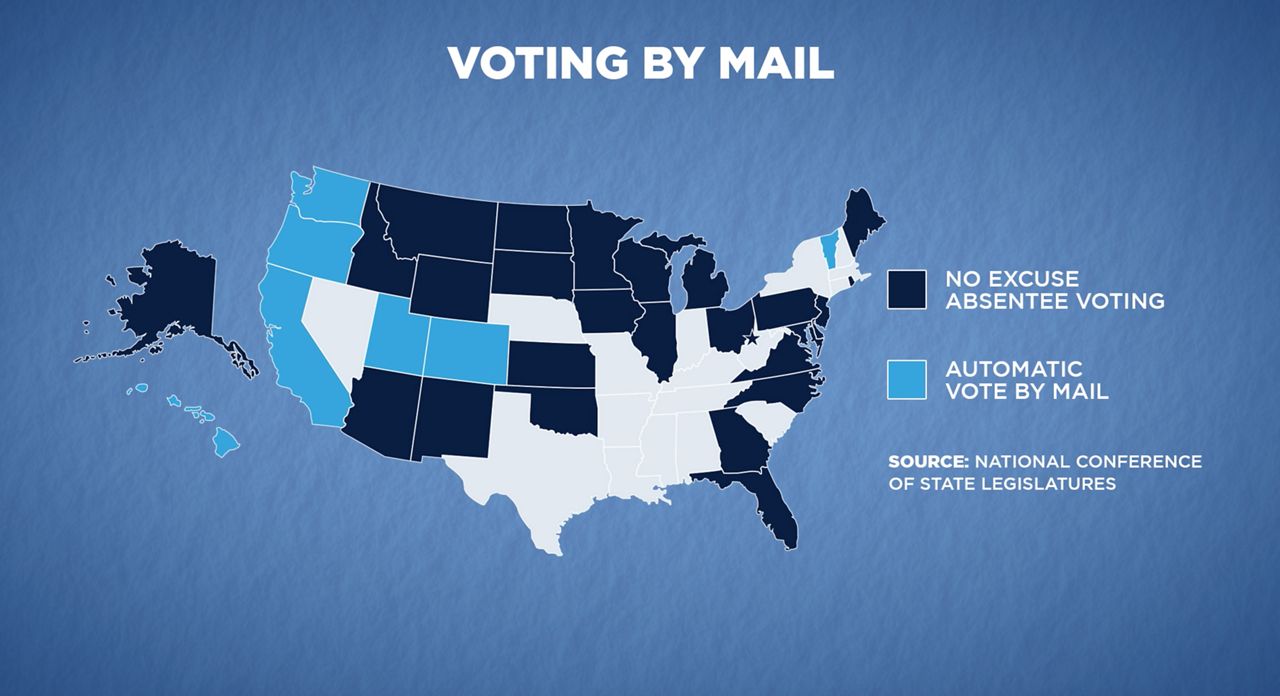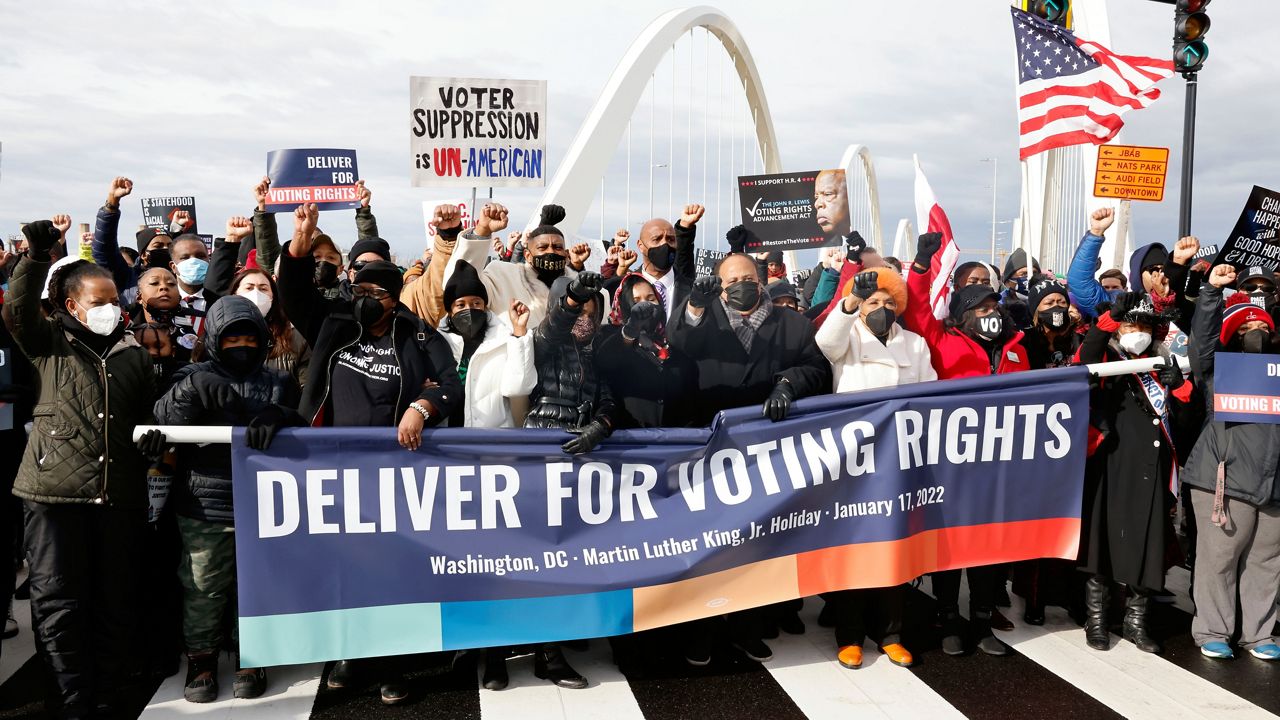A record number of states in the last year enacted voting making it more difficult to vote. According to a tally from the Brennan Center for Justice, 19 states have passed 34 restrictive voting laws in the last year, the most in a single year since the group began tracking such legislation in 2011.
Those laws were championed by Republicans who said they were needed to combat fraud, emboldened by former President Donald Trump's baseless, repeatedly debunked claims of widespread wrongdoing in the 2020 election. (There is no evidence of widespread voter fraud in the 2020 election.)
Despite the lack of evidence and rejections of his baseless accusations by courts nationwide, Trump peddled his false claim that the 2020 election was riddled with fraud, and that he lost to Joe Biden because of it.
Recounts, audits and judicial reviews all repeatedly confirmed that Biden won fairly.
Democrats countered that new restrictions would disproportionately hurt their voters, especially in communities of color. They call that racist, branding it as "Jim Crow 2.0." But some are questioning whether the Democrats’ allegations are hyperbolic as well.
To understand why, it’s helpful to look back 14 years – to the 2008 presidential contest between Barack Obama and John McCain, and voters in Georgia.
In order to vote that year, Georgia residents had to do something new: present a photo ID.
The requirement was controversial. Opponents some said forcing people to pay for an ID card was a way to once again suppress Black votes.
Still, turnout in Georgia rose that year, including in communities of color.

Ever since, Georgia’s turnout has actually outpaced that of New York State, which does not require voter ID cards. There may be other explanations for Georgia's superior turnout. And without the ID requirement, turnout in Georgia may have been even higher.
Still, those favoring additional hurdles to voting say the lesson is clear.
“Doing things like requiring an I.D. don't make it harder to vote,” says Hans von Spakovsky of the Heritage Foundation. “Not only did turnout not go down, in fact, states like Georgia have seen record registration and record turnout.
New voting restrictions adopted last year in Georgia and other Republican-led states are again the subject of national debate.

The laws reversed voting expansions enacted during the pandemic, added new ID requirements, gave more power to state lawmakers over local election official or limited early voting.
Democrats and voting rights activists are likening it once again to a bleak era in U.S. history.
“Jim Crow 2.0 is about two insidious things: Voter suppression and election subversion,” President Joe Biden said at an address on the issue in Atlanta on Jan. 11
“Whether or not it's targeted the actual impact, a lot of these laws are on voters of color and seem… akin to Jim Crow laws,” added Susannah Scott of the League of Women Voters of the League of Women Voters of Georgia.
But comparing what’s happening now, to times of widespread – and deadly – civil rights abuses, is also drawing pushback.
“As I listened to the president talk about the importance of stopping what he characterized as Jim Crow 2.0, I felt frustration and irritation rising,” Sen. Tim Scott, a Republican from South Carolina said earlier this month. “As I keep hearing the references to Jim Crow, I ask myself how many Americans understand what Jim Crow was.”
Perhaps lost in the fight is that in some so-called blue states it’s arguably harder to vote, at least in one respect.

For instance, 26 states and Washington, D.C., allow voters to obtain absentee ballots without having to provide a reason why they need one; eight more states automatically send voters ballots.
New York – a state controlled by a Democratic supermajority – is not one of them. Voters rejected it in a referendum last year.
“People on both sides of this debate are trying to kind of whip up public opinion. One side sees fraud everywhere, fraud and cheating,” said Richard Briffault, Joseph P. Chamberlain Professor of Legislation at Columbia Law School.
“And on the Democratic side - the language is often used as voter suppression casting doubt on – that it is a civil rights violation. Jim Crow. I think some of the language is kind of strong. But what we are seeing is kind of an effort to make it harder for people to vote.”
Briffault says those expected to be most affected are new citizens, those voting for the first time, and those who don’t vote very often.
The new laws sparked dozens of lawsuits, including at least eight in Georgia.



